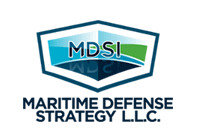MARAD or better known as The Maritime Administration is officially known as The Office of Maritime Security. It supports the U.S. maritime transportation system, the U.S. Merchant Marine, and other elements of the U.S. maritime industry.
MARAD facilitates the development and implementation of effective maritime security policies, procedures, practices, statutes, and training to protect U.S. citizens and maritime interests from maritime security threats such as piracy, terrorism, criminal activity, and cyber-attack. MARAD also provide information for U.S.-flag vessels, serve as the Department of Transportation’s (DOT) principal coordinator for maritime domain awareness matters, function as the DOT lead within the inter-agency Maritime Operational Threat Response process, serve as a key facilitator between the maritime industry and government agencies, and provide expert maritime security advice and assistance on issues involving the global maritime transportation system.
MARAD is broken into the following specialties: (Click on the link to see more information on each sector)
- Maritime Security Communications with Industry (MSCI)
- Piracy and Armed Robbery Against Ships
- Maritime Domain Awareness (MDA)
- Other Federal Maritime Security Resources
- Regional Threat Information and POCs
- Maritime Administration Certification of Cruise Vessel Security and Safety Act (CVSSA) Training Providers
- Port Security Grant Program
- Maritime Cyber Security
- Office of Maritime Security Contacts
As of late, cyber security has become a topic of extreme interest in the maritime nexus. As a result, maritime Cyber Security represents another area of focus for the Maritime Administration (MARAD). The Office of Maritime Security works with the Department of Homeland Security (DHS) and others to share cyber security resources and best practices with the U.S. maritime industry and shares the maritime industry’s cyber security concerns with appropriate government agencies.
The documents referenced below provide best practices for cyber security as a foundation element of overall safety and security within and across the marine and offshore communities. The best practices are meant to provide insights for the operation, maintenance, and support of cyber-enabled systems to assure safety and security in those systems better.
See the documents linked below for more information on maritime cyber security:
- Industry guidelines on cyber security onboard ships (Updated Version)
- Guidelines on Maritime Cyber Risk Management (MSC-FAL.1/Circ.3)
- National Institute of Standards and Technology Cyber Security Framework
- ASTM Standard Guide for Cybersecurity and Cyberattack Mitigation
MARAD stand along with the U.S. Coast Guard at the forefront of maritime cyber security. It is best to use all the available resources at hand.
For additional information please contact us or visit our website at www.mdsicompliance.com.


